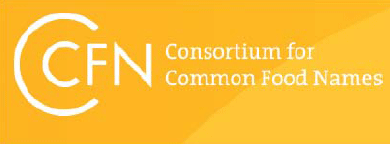
 The U.S. Senate is keeping up the pressure on the European Union (EU) to not hamper U.S. production and exports through the appropriation of common food names. This time the focus is on commonly used meat names, such as "bologna" and "black forest ham". In a letter to U.S. Trade Representative Michael Froman and Agriculture Secretary Tom Vilsack, the senators urged them to defend common names, especially in negotiations with the EU on the Trans-Atlantic Trade and Investment Partnership (TTIP).
The U.S. Senate is keeping up the pressure on the European Union (EU) to not hamper U.S. production and exports through the appropriation of common food names. This time the focus is on commonly used meat names, such as "bologna" and "black forest ham". In a letter to U.S. Trade Representative Michael Froman and Agriculture Secretary Tom Vilsack, the senators urged them to defend common names, especially in negotiations with the EU on the Trans-Atlantic Trade and Investment Partnership (TTIP).Last month the Senate sent a similar letter focused on common cheese names that are under attack, including "parmesan", "feta" and "asiago", among others. But U.S. meat products are also at risk in pending trade negotiations.
"This trade barrier is of great concern to meat and other food manufacturers in our states," the senators wrote in today's letter. "We urge you to continue to push back against the EU's efforts to restrict our meat exports, particularly to nations with which we already have free trade agreements (FTAs)."
In country after country, the EU has been using its FTAs to persuade trading partners to impose barriers to U.S. exports under the guise of protecting geographical indications (GIs). For example, as part of their recently implemented FTA with the EU, countries in Central America agreed to impose new restrictions on the use of "bologna", effectively closing an export opportunity that the U.S.-Central America FTA opened for U.S. companies. Similar trade barriers are being imposed in other parts of Latin America and are also under discussion in many Asian countries involved in negotiations with the EU.
"We thank the U.S. Senate for once again stepping forward to call attention to this fast-growing type of agricultural trade barrier," said Jaime Castaneda, Executive Director of the Consortium for Common Food Names (CCFN), an international non-profit alliance. "The EU has been aggressively moving to 'own' these names, at the expense of not only U.S. farmers and businesses but also those in many other countries around the world. Countries are beginning to catch on to what the EU is doing, and to cry foul."
CCFN supports the goal of ensuring that legitimate GIs like Idaho Potatoes and Parmigiano Reggiano are appropriately protected. However, overly restrictive GIs for meats could hit smaller businesses particularly hard, since they often specialize in artisan and other specialty meat products.
"What you call a food is a very big deal," Castaneda added. "It can add up to billions of dollars for U.S. companies and hundreds of jobs. And for consumers, restricting these names means less choice, more confusion, and very likely higher prices for some of their favorite foods."
European GIs encompass many food and beverage categories, meaning many areas of food trade worldwide are potentially threatened by the EU's unfair claims to the exclusive use of common food names and even common-place terms such as "classic", "ruby" and "chateau".
"We ask that USTR and USDA continue to work aggressively to ensure the EU's GI efforts on commonly used meat product names do not impair the ability of U.S. businesses to compete both domestically and internationally. We ask you to make this a top priority through official TTIP, Trans Pacific Partnership (TPP) and bilateral negotiations," the letter concludes.
The full letter can be found here on the CCFN website, www.CommonFoodNames.com.
4.7.2014